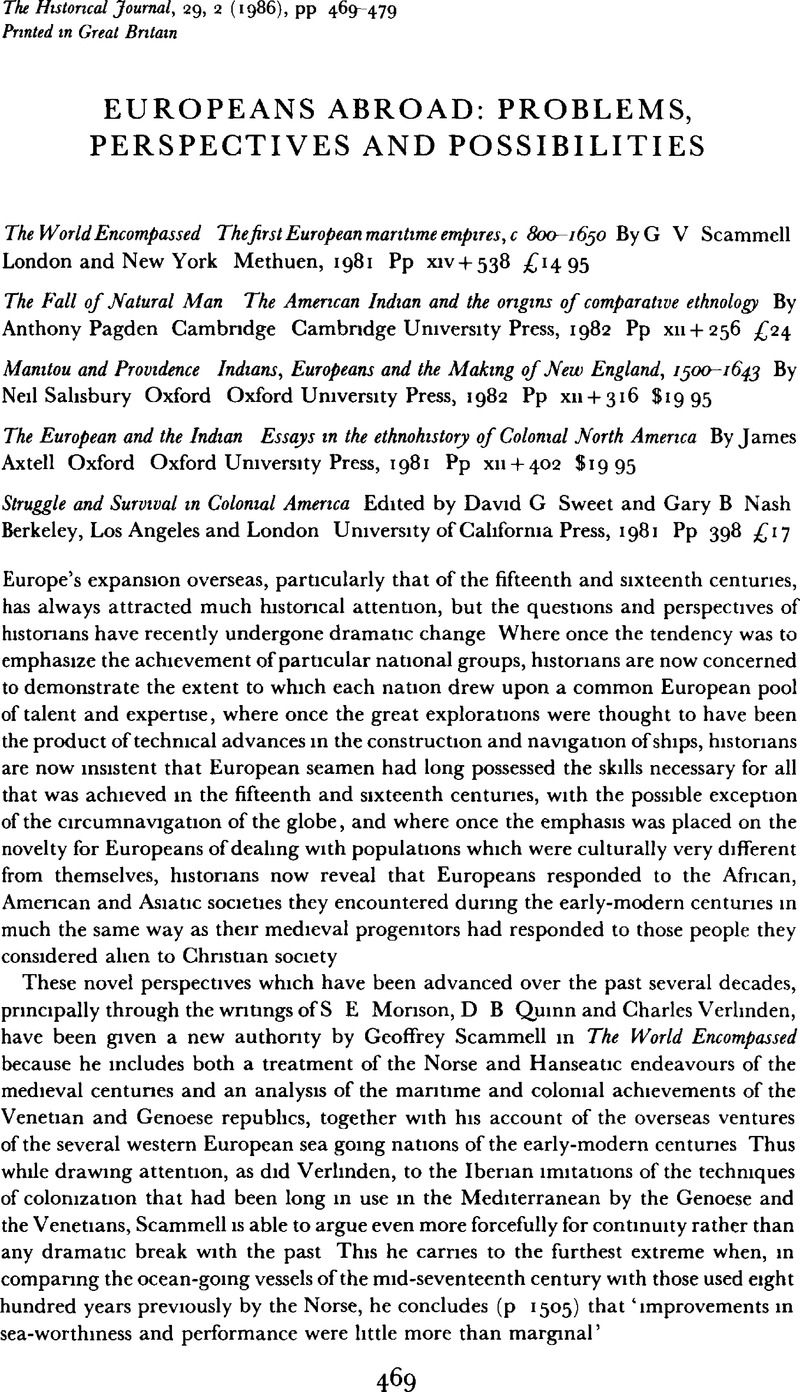No CrossRef data available.
Article contents
Europeans Abroad: Problems, Perspectives and Possibilities
Published online by Cambridge University Press: 11 February 2009
Abstract

- Type
- Review Articles
- Information
- Copyright
- Copyright © Cambridge University Press 1986
References
1 See especially Dechêne, Louise, Habitants et marchands au XVIIe stecle (Paris, 1974) especially parts a and 3, pp 125–230 and 231–347Google Scholar, which deal respectively with commerce and agriculture For a more purely social and demographic study of French society in Canada see Trudel, Marcel, Montréal la formation d'une société, 1642–63 (Montreal, 1976)Google Scholar
2 Andrews, Kenneth R, Trade, plunder and settlement maritime enterprise and the genesis of the British Empire, 1480–1630 (Cambridge, 1984)Google Scholar
3 Besides the books by Salisbury, Axtell and Sweet and Nash discussed in this review article, readers should, for Spanish America, consult Farriss, Nancy M, Maya society the collective enterpise of survival (Princeton, 1984)Google Scholar and for British North America Merrell, James H, ‘Cultural continuity among the Piscataway Indians of colonial Maryland’, The William and Mary Quarterly, 3rd series, XXXVI (1979), 548–71CrossRefGoogle Scholar, idem, ‘The Indians' new world the Catawba experience’, The William and Mary Quarterly, 3rd series, XLI (1984), 537–65, idem, ‘The racial education of the Catawba Indians’, in The Journal of Southern History, L (1984), 363–84
4 For a general appraisal of this subject, see Ryan, Michael T., ‘Assimilating new worlds in the sixteenth and seventeenth centuries’, Comparative Studies in Society and History, XXII (1981), 519–38CrossRefGoogle Scholar, and for a particular study see Canny, Nicholas, ‘Edmund Spenser and the development of an Anglo-Irish identity’, The Yearbook of English Studies, XIII (1983), 1–19CrossRefGoogle Scholar.
5 Jennings, Francis, The invasion of America: Indians, colonialism and the cant of conquest (Chapel Hill, N.C., 1975)Google Scholar.


